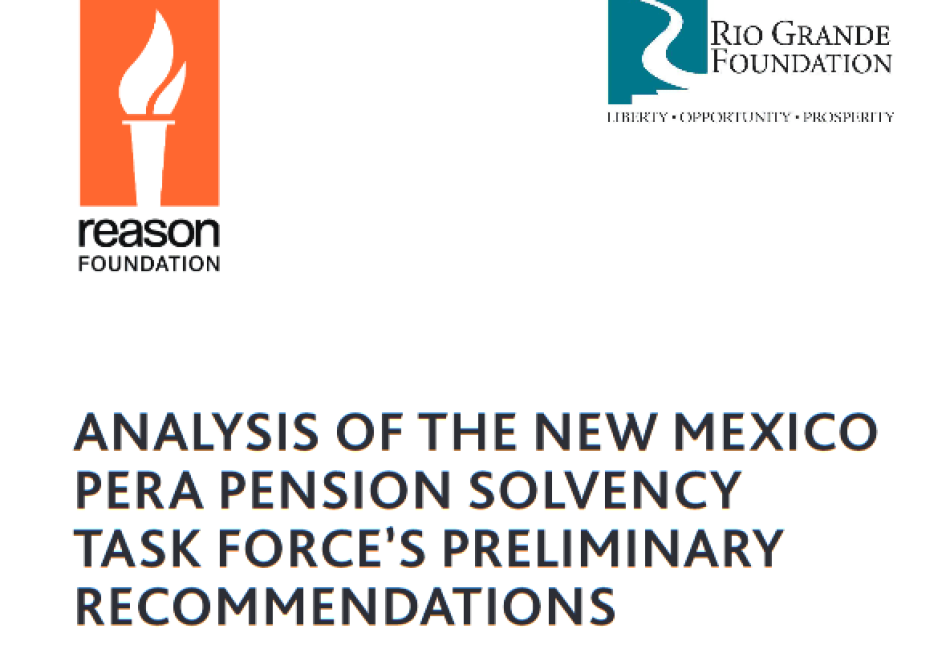Reason Foundation and Rio Grande Foundation Release Analysis of Task Force Plans for PERA Solvency

(Albuquerque) The Rio Grande Foundation applauds Gov. Lujan-Grisham for taking on the tricky, but important issue of pension reform. In collaboration with the Pension Integrity Project at Reason Foundation, a national free market think tank, the groups have released an analysis of the preliminary recommendations of the Governor’s Public Employees Retirement Association (PERA) Pension Solvency Task Force.
The analysis which is available on the Rio Grande Foundation’s website reviews the task force’s proposals—intended to improve PERA’s solvency by eliminating over $6 billion in unfunded liabilities over the next 25 years—from an actuarial and financial perspective and finds them a positive step overall, with room in some areas to enhance solvency even further.
Rio Grande Foundation president Paul Gessing said of the Task Force, “We commend the Gov. for taking on this important issue. With massive budget surpluses available, now is an opportune time to put New Mexico’s PERA and ERB systems on sound financial footing. That said, we believe that the rising costs and financial risks New Mexico taxpayers have experienced over the last two decades are unsustainable, and the Task Force’s recommendations leave some systemic challenges—namely funding policy, actuarial methods and assumptions—unaddressed.”
Gessing went on, saying “Despite the conflict on both sides of the aisle, pension reform can and should be a bi-partisan issue. Successful reforms have been enacted in “blue” Rhode Island, politically-competitive Michigan, and “red” Utah. In fact, our Four Corners neighbors Arizona, Utah, and Colorado have all enacted major bi-partisan pension reforms in recent years. There is no reason for New Mexico not to tackle this important problem head-on while the budget is flush.”
The Reason/Rio Grande Foundation analysis walks through specific proposed solutions to New Mexico’s PERA issues including employee contributions, Cost of Living Adjustments (COLA), the 90 percent earnings cap, negative cash flow, and improving actuarial assumptions. Each of these areas needs to be addressed as part of a successful PERA reform.
Concluded Gessing, this report is part of what will be a team effort by his Foundation and the Pension Integrity Project to provide technical assistance to policymakers, educate stakeholders, and contribute to the ongoing pension reform discussion in New Mexico. We are eager to make sure policymakers of all ideologies and walks of life have an understanding of what can and should be done to fix PERA.
